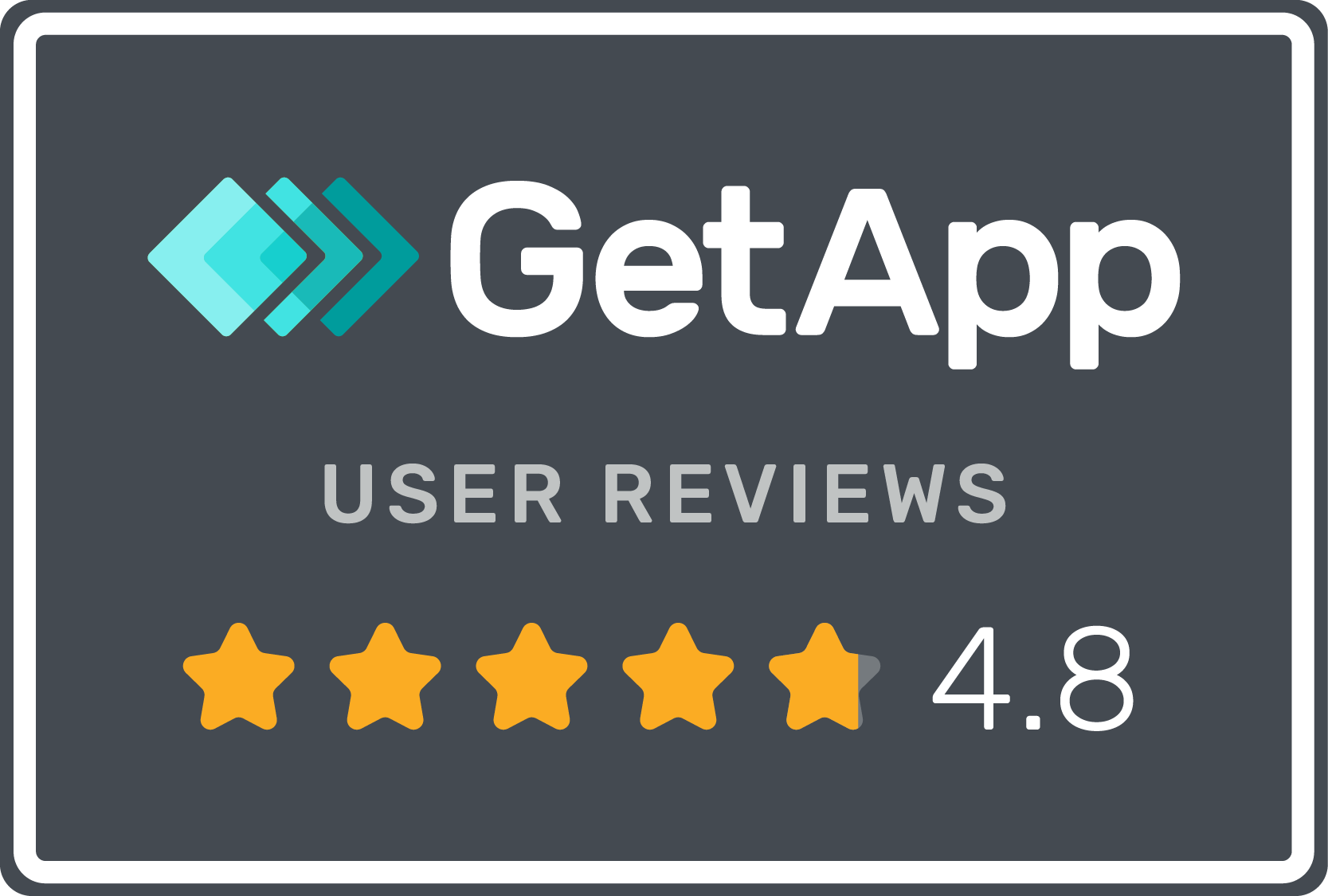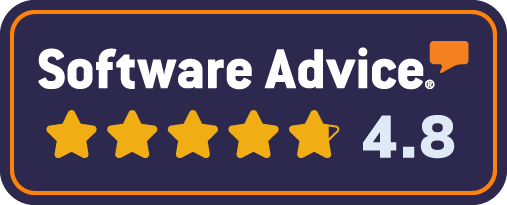How DAM powers modern marketing (without the chaos)

Modern marketing runs on creativity, and rules. You need fresh ideas and consistent execution across every channel, from social posts and paid ads to pitch decks and product pages. That’s easy to say and hard to do when your assets live in twenty places and there are three versions of every logo.
That’s why modern teams rely on Digital Asset Management (DAM) systems. Not as another folder system, but as the backbone that keeps work moving fast, on-brand, and measurable.
The real problem: asset sprawl
As campaigns multiply, so do files. Designers export variants. Modern marketers save drafts. Partners request tweaks. Before long, your file system is a maze of duplicates, outdated templates, and mystery filenames. Every “where’s the latest one?” costs minutes — and momentum.
DAM fixes this at the source by giving every asset a single home, a single source of truth, and a clear lifecycle.
What great DAM looks like
A good DAM isn’t just storage. It’s a system that:
- Centralises images, videos, audio, logos, documents, and templates in one place.
- Adds structure with rich metadata (titles, rights, usage notes), tags, colours, products, and campaigns.
- Speeds discovery with powerful search, filters, and visual previews.
- Protects the brand with version control, approval workflows, expiry dates, and permissions.
- Shares safely via brand portals, collections, and expiring links—no more giant email attachments.
- Measures impact with usage analytics across channels and teams.
Result: less hunting, fewer do-overs, and more time in the creative zone.
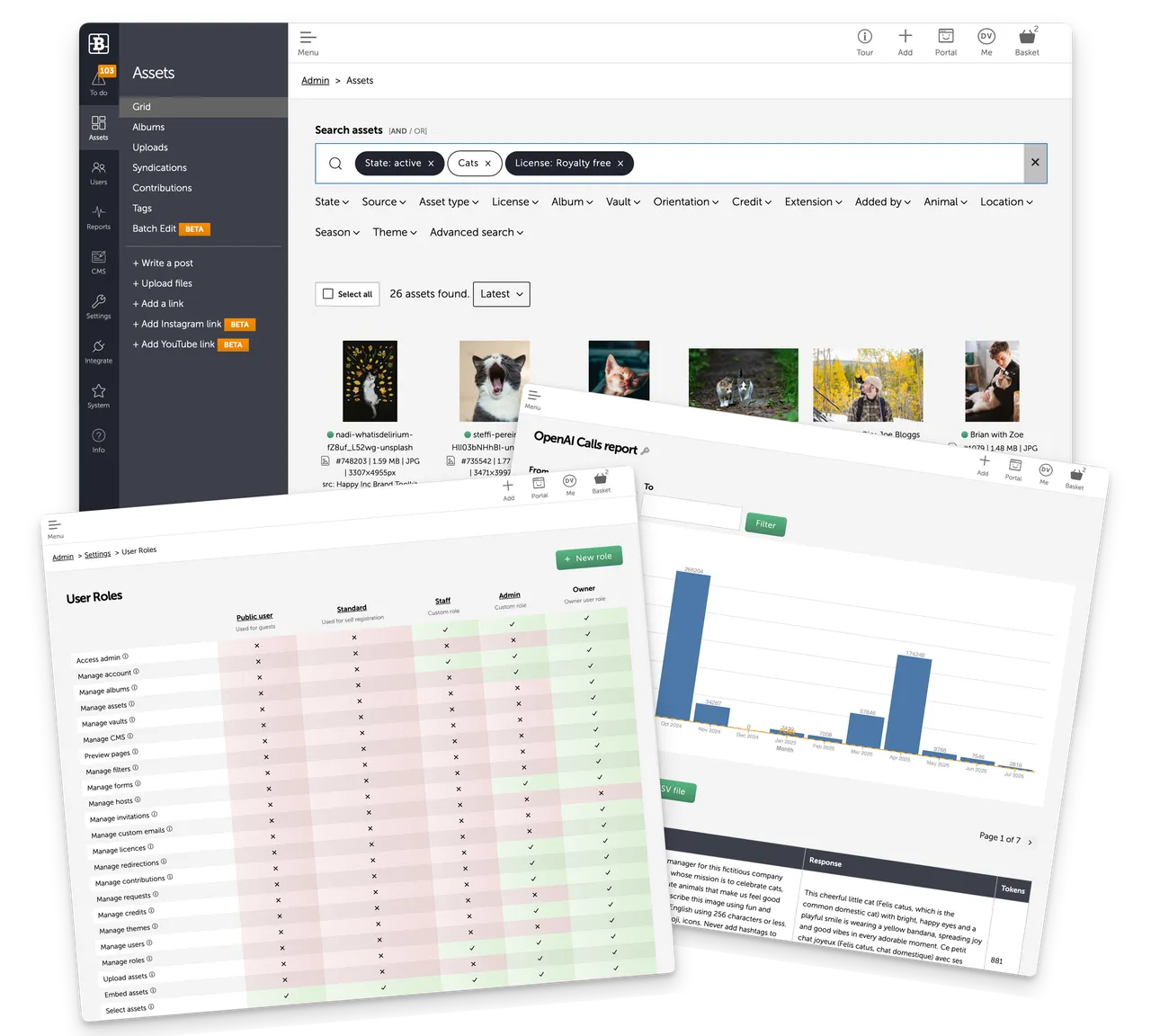
Your brand/design/marketing asset library, finally tidy
Give designers and content teams an asset library that works like muscle memory. Search by campaign, product, colour, or shot list. Pull the right cut-down in seconds. Reuse elements without re-creating them. When the “source of truth” is obvious, flow state follows.
Brand consistency made easy
Consistency isn’t a poster on the wall; it’s the default in your tools. Host current logos, type styles, colour tokens, and brand voice guidance right next to your assets. Lock templates where needed.
Let teams self-serve the latest while the system quietly retires old versions. That’s how you look and sound like the same brand everywhere — without policing every file.
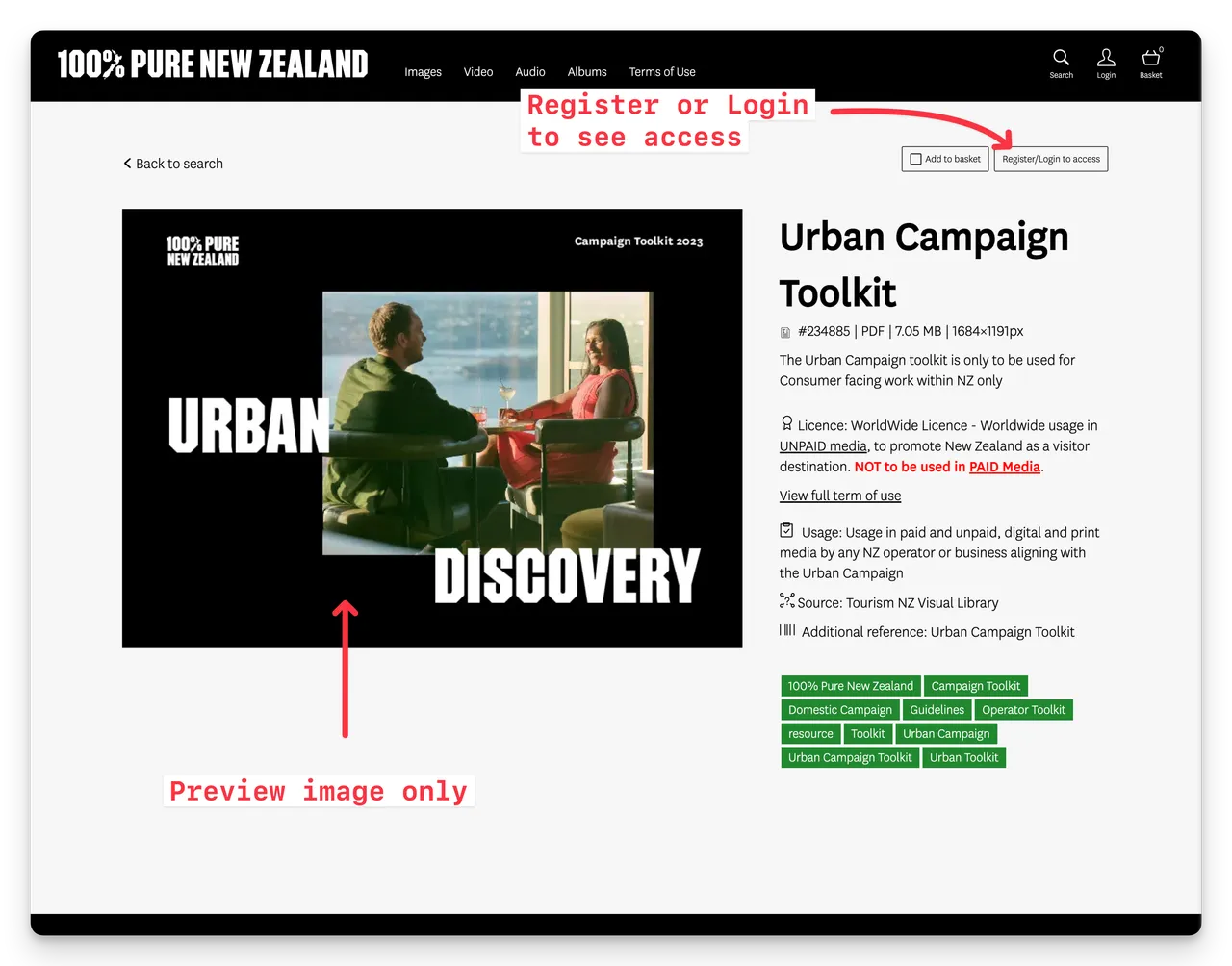
Faster go-to-market
Trends move quickly. Product launches slip. Paid windows are tight. A well-organised digital library removes friction:
- Preview in place. Check dimensions, crops, and captions without downloading.
- Transform on export. Generate the size, format, or watermark you need—no new design ticket.
- Route for approval. Lightweight workflows keep legal and brand checks quick and traceable.
- Self-serve access. Ensure staff, partners and other trusted users have self-serve access to content.
- Create quick access. Create a QR code that links directly to your brand portal, campaign assets, or content selection.
From storage to strategy
Once assets live in a single system, you can learn from them. Which hero images drive the most reuse? Which templates get adopted? Where are the gaps in product coverage?
Use asset analytics to plan smarter shoots, retire stale content, and double down on what performs. DAM becomes a quiet but important decision engine.
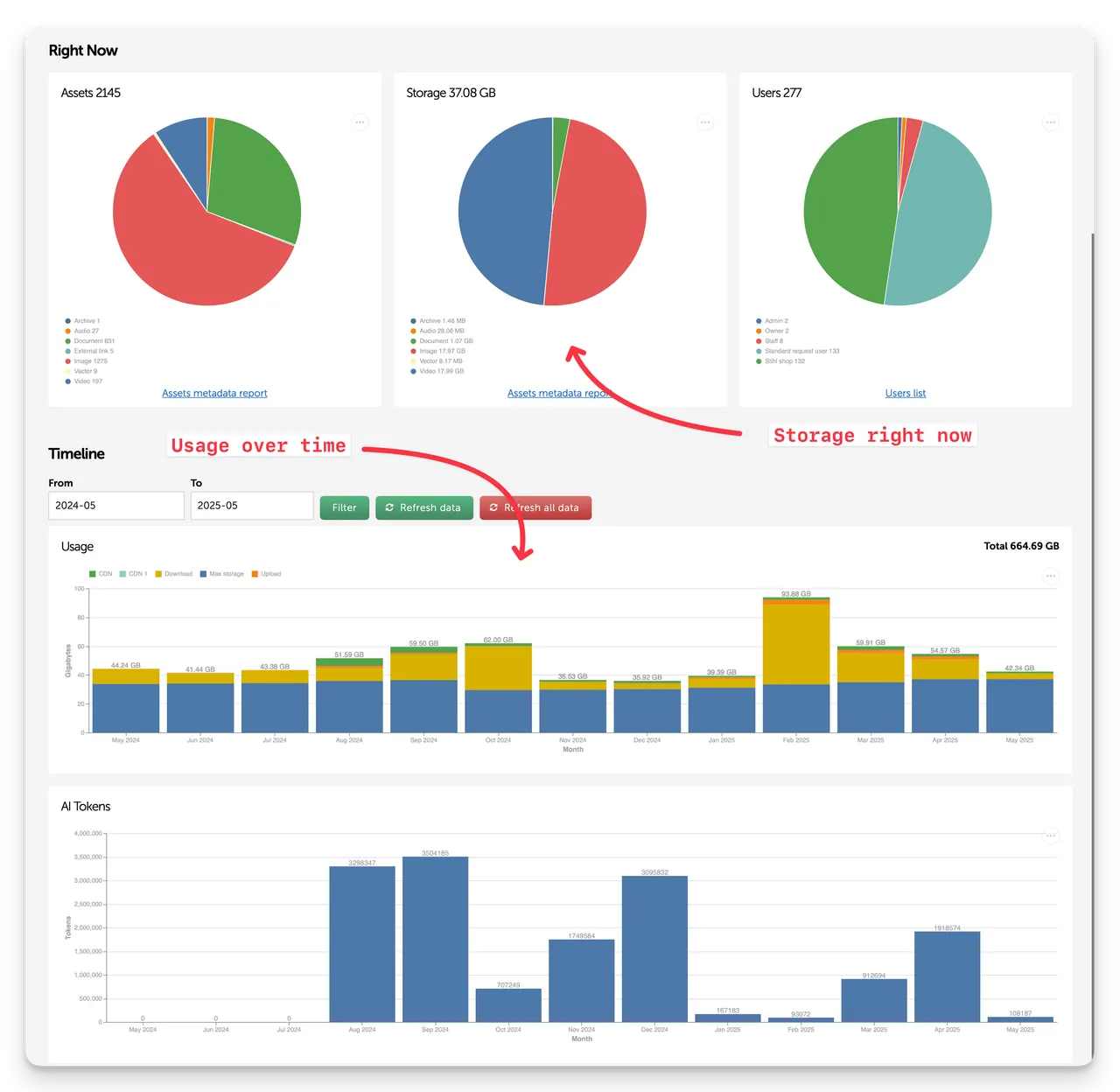
Not just for global brands
You don’t need thousands of assets to benefit from DAM. Smaller teams win big when they move from shared drives to a proper brand portal — especially if you work with agencies, retailers, or community partners.
Give each audience a tailored window into approved materials and keep everything else private.
Brandkit’s point of view: your brand knowledge base
Brandkit goes beyond traditional DAM. We’re building the brand knowledge base that organizes all your brand content assets and knowledge in one place — for both humans and AI:
- Structured brand answers. Capture rules, product facts, narratives, and usage rights alongside media, so guidance ships with the asset.
- RAG-ready content. Serve verified, on-brand answers to AI chatbots and internal assistants via Retrieval-Augmented Generation—so your models quote the latest guidelines and assets, not guess.
- Governance by design. Permissions, expiries, and licensing travel with files and feed downstream tools.
In short: a single, trustworthy back-end for everything your brand says and shows — whether a person or an AI is asking.
A simple rollout plan
- Inventory what matters. Start with your most used campaigns, logos, product imagery, and templates.
- Define metadata. Agree on a small, durable schema: product, campaign, channel, region, rights, expiry.
- Migrate and de-duplicate. Move approved assets, merge versions, archive the rest.
- Publish your portal. Create collections for core audiences (internal teams, partners, press).
- Enable guardrails. Set approvals, expiries, and transformations; lock critical templates.
- Measure and iterate. Track reuse, searches with no results, and top downloads to guide content ops.
The payoff
When your assets, guidelines, and brand knowledge live together, teams ship faster, creative quality goes up, and the brand feels consistent—everywhere. That’s the quiet power of DAM done right.
Ready to turn chaos into clarity? Brandkit helps you build the brand knowledge base behind your marketing and AI.
Want a tour or a quick audit of your current library? Tell us what you’re juggling and we’ll map a path to a cleaner, faster setup. Contact us.
Additional Resources
How DAM powers modern marketing (without the chaos)
Discover how DAM powers modern marketing by streamlining content, reducing chaos, and helping teams move faster with the right assets at their fingertips.

